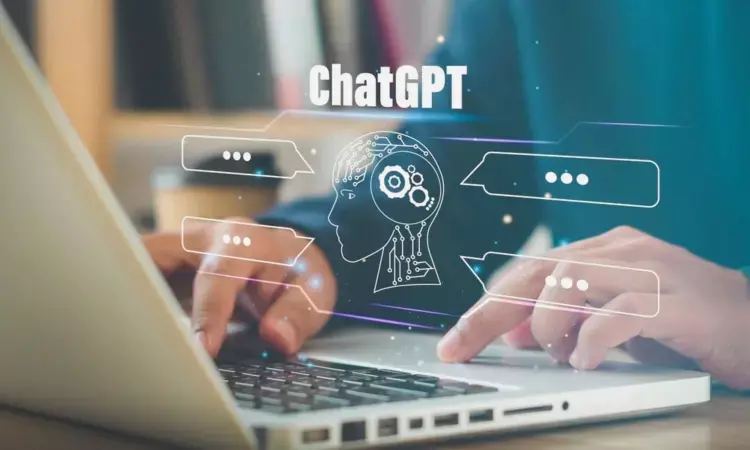- Home
- Medical news & Guidelines
- Anesthesiology
- Cardiology and CTVS
- Critical Care
- Dentistry
- Dermatology
- Diabetes and Endocrinology
- ENT
- Gastroenterology
- Medicine
- Nephrology
- Neurology
- Obstretics-Gynaecology
- Oncology
- Ophthalmology
- Orthopaedics
- Pediatrics-Neonatology
- Psychiatry
- Pulmonology
- Radiology
- Surgery
- Urology
- Laboratory Medicine
- Diet
- Nursing
- Paramedical
- Physiotherapy
- Health news
- Fact Check
- Bone Health Fact Check
- Brain Health Fact Check
- Cancer Related Fact Check
- Child Care Fact Check
- Dental and oral health fact check
- Diabetes and metabolic health fact check
- Diet and Nutrition Fact Check
- Eye and ENT Care Fact Check
- Fitness fact check
- Gut health fact check
- Heart health fact check
- Kidney health fact check
- Medical education fact check
- Men's health fact check
- Respiratory fact check
- Skin and hair care fact check
- Vaccine and Immunization fact check
- Women's health fact check
- AYUSH
- State News
- Andaman and Nicobar Islands
- Andhra Pradesh
- Arunachal Pradesh
- Assam
- Bihar
- Chandigarh
- Chattisgarh
- Dadra and Nagar Haveli
- Daman and Diu
- Delhi
- Goa
- Gujarat
- Haryana
- Himachal Pradesh
- Jammu & Kashmir
- Jharkhand
- Karnataka
- Kerala
- Ladakh
- Lakshadweep
- Madhya Pradesh
- Maharashtra
- Manipur
- Meghalaya
- Mizoram
- Nagaland
- Odisha
- Puducherry
- Punjab
- Rajasthan
- Sikkim
- Tamil Nadu
- Telangana
- Tripura
- Uttar Pradesh
- Uttrakhand
- West Bengal
- Medical Education
- Industry
AI chatbot useful tool for providing nutritional information but cannot replace nutritionists: JAMA

Taiwan: A recent study published in JAMA Network Open has shed light on the accuracy and consistency of artificial intelligence (AI) in providing nutritional information.
The researchers found that artificial intelligence can be a convenient and useful tool for people who want to know their foods' macronutrients and energy information. They, however, specified that AI chatbots cannot replace nutritionists but can provide real-time analysis of foods, and the capacity to harness AI technology in a supportive role may fundamentally transform the communication between nutritionists and patients.
In a digital world, people are increasingly depending on the internet for nutrition-related and food-related information. A recent report, however, showed that almost half of online, nutrition-related information was of low quality (48.8%) or inaccurate (48.9%). The ability of AI chatbots to streamline the navigation of public information and provide conversational texts to users has transformed electronic health. However, there is no clarity on their ability to handle nutrition-related questions.
To clarify the same, Yen Nhi Hoang, Taipei Medical University, Taipei, Taiwan, and colleagues investigated the reliability of AI in providing the macronutrient and energy content of 222 food items using different languages (English and Traditional Chinese) as inputs in a cross-sectional study.
The researchers followed the STROBE reporting guideline and did not need approval from the institutional review board or informed consent because it did not involve human participants following the Common Rule.
The study aimed to compare the reliability of ChatGPT-3.5 (chatbot 1) and ChatGPT-4 (chatbot 2) in providing information on the macronutrient and calorie content (proteins, fats, and carbohydrates) for eight menus (222 food items) designed for adults. A search was conducted using the following prompt: "As a dietitian, please draw a table to calculate line by line the energy (kcal)/carbohydrates (g)/lipids (g)/proteins (g) of the following food items (raw, not cooked).”
The consistency of AI responses was determined based on the coefficient variation (CV) for each food item in five repeated measurements. The accuracy of responses was assessed by cross-referencing the AI answers with nutritionists’ recommendations based on the food composition database of the Taiwanese Food and Drug Administration.
AI response accuracy was determined if answers were within ±10% or ±20% of the ground truth level energy (kilocalories) or macronutrients (grams). Differences in energy (kilocalories) and macronutrients (grams) between AI and nutritionists and between the 2 versions (3.5 and 4) were compared using A Student paired t-test.
The study led to the following findings:
- There were no significant differences between nutritionist and AI estimations of energy, carbohydrate, and fat contents of 8 menus designed for adults, but there was a significant difference in protein estimation.
- Both chatbots provided accurate energy contents for approximately 35% to 48% of the 222 food items within ±10%, with a CV of less than 10%.
- Chatbot 2 performed better than Chatbot 1, but it overestimated protein.
"AI chatbots are designed to be probabilistic, however, the findings of this cross-sectional study suggest that AI can be a convenient and useful tool for people who want to know the macronutrient and energy information of their foods," the researchers wrote.
Limitations included that the AI had a knowledge cutoff of September 2021, and the tested foods might not represent the most frequently consumed foods. Users need to be aware that AI is not a search engine, and answers provided by AI chatbots can be impacted by input language, chatroom environment, and clarity of the prompt.
Reference:
Hoang YN, Chen Y, Ho DKN, et al. Consistency and Accuracy of Artificial Intelligence for Providing Nutritional Information. JAMA Netw Open. 2023;6(12):e2350367. doi:10.1001/jamanetworkopen.2023.50367
Dr Kamal Kant Kohli-MBBS, DTCD- a chest specialist with more than 30 years of practice and a flair for writing clinical articles, Dr Kamal Kant Kohli joined Medical Dialogues as a Chief Editor of Medical News. Besides writing articles, as an editor, he proofreads and verifies all the medical content published on Medical Dialogues including those coming from journals, studies,medical conferences,guidelines etc. Email: drkohli@medicaldialogues.in. Contact no. 011-43720751


